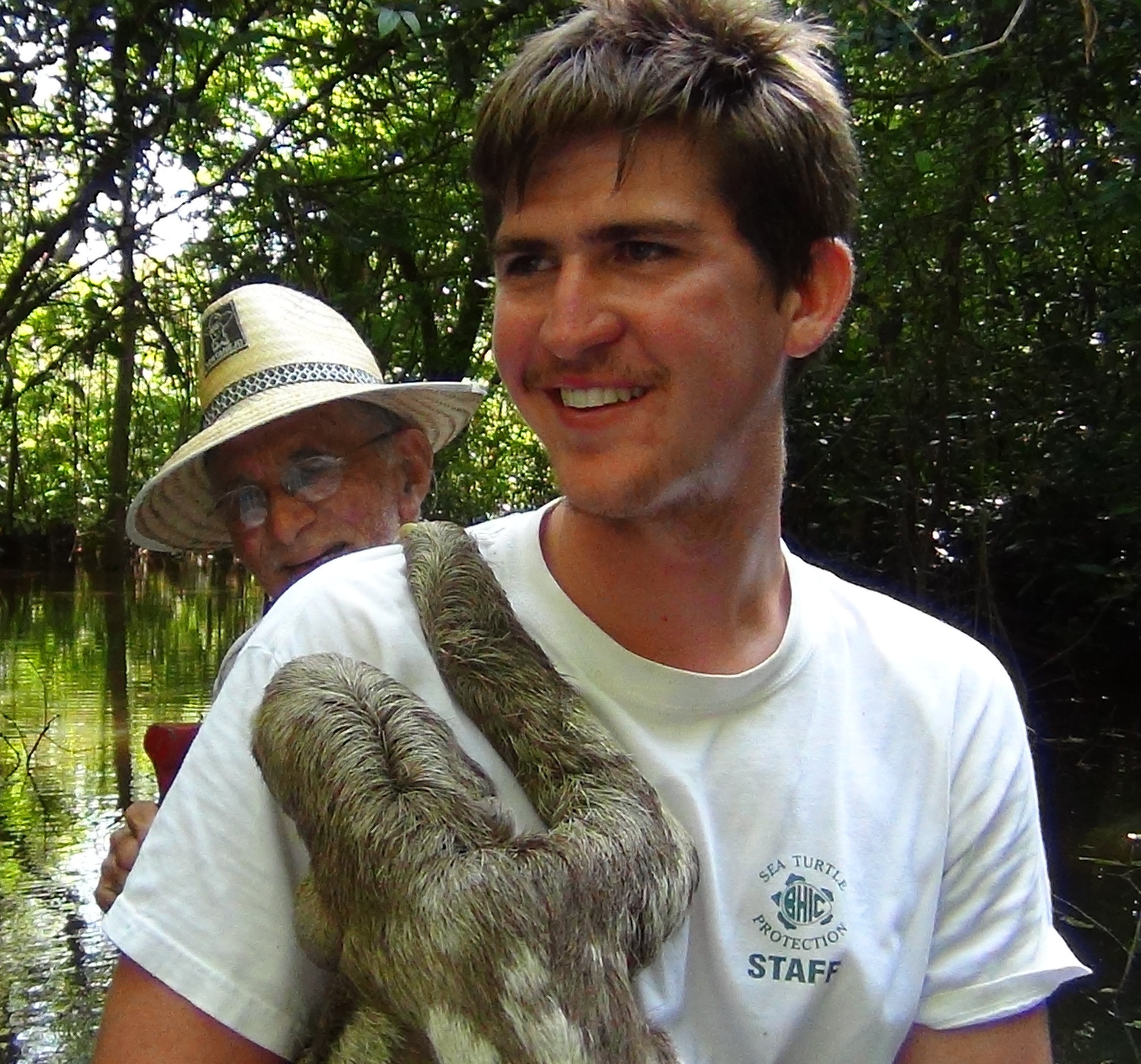
David is a 4th year PhD student at UC Berkeley and is currently in Sabah for 10 months researching bearded pig ecology and conservation. The project integrates innovative GPS technology, muddy boots ecology, and social outreach to study and conserve the bearded pig, a threatened species that may be the only migratory rain forest ungulate in the world.
Large mammal migrations are the heartbeat of many ecological systems, yet they are in decline worldwide due primarily to habitat loss and overhunting. The storied bearded pig migrations of Borneo’s rain forests may be unique among large mammals, but are virtually unstudied in comparison to other famous migrations (wildebeest, elk, marine mammals, etc). Numerous accounts from hunters and explorers report bearded pig migrations hundreds or thousands strong, pulsing vast distances through forests, across rivers, and up mountains to forage…But these long-distance movements remain a great mystery even as bearded pig declines range-wide threaten both the ecological and cultural integrity of Borneo. Ecologically, the pig helps shape tree communities through seed consumption and sapling snapping. Culturally, archaeological evidence suggests the bearded pig has been the most important hunting target for Borneo’s indigenous peoples for over 30,000 years, as it remains today. Despite their clear importance, bearded pig populations have declined an estimated 30% in recent decades as a result of overhunting and deforestation. The species is nearly extinct in Peninsular Malaysia and is declining rapidly in Borneo, with many areas already deforested and/or hunted-out.
Therefore, David is working with Prof. Potts and Prof. Brashares from UC Berkeley, as well as Dr. Benoit Goossens, Prof. Charles Vairappan, Mr. Siew Te Wong, Danau Girang Field Centre, and the Sabah Wildlife Department to GPS collar 10 wild bearded pigs in the Lower Kinabatangan Wildlife Sanctuary. Location and activity data from the collars will answer questions about the persistence of bearded pig migratory/nomadic movements in fragmented landscapes, as well as provide fine-scale information about bearded pig resource and path selection in a secondary forest – oil palm mosaic. The team will also collaborate with landowners, workers, and government officials to create a data-driven and culturally-sensitive management plan for the bearded pig. This work will help provide sustainable wild meat for many communities in Borneo while also paving the way for more effective conservation for the pig and its iconic migrations. Partners and funders for the project include National Geographic, the National Science Foundation, the U.S. Fulbright Program, Universiti Malaysia Sabah, the Harvey Fellows Program, the American Philosophical Society, UC Berkeley, and the Ocean Park Conservation Foundation.
Prior to coming to UC Berkeley, David completed his undergraduate degree in Ecology & Evolutionary Biology at Princeton University and his master’s degree in Zoology as a Gates Cambridge Scholar at the University of Cambridge. Outside of research and school, he has worked in full-time Christian ministry and has a passion for dialogues at the intersections of theology, faith, culture, and conservation. He also enjoys playing soccer and tennis, following European soccer (especially FC Barcelona), drinking third wave coffee, and going hiking & backpacking. Following his year in Sabah, David hopes to continue his applied conservation ecology research as well as create new partnerships between religious communities and environmentalists.